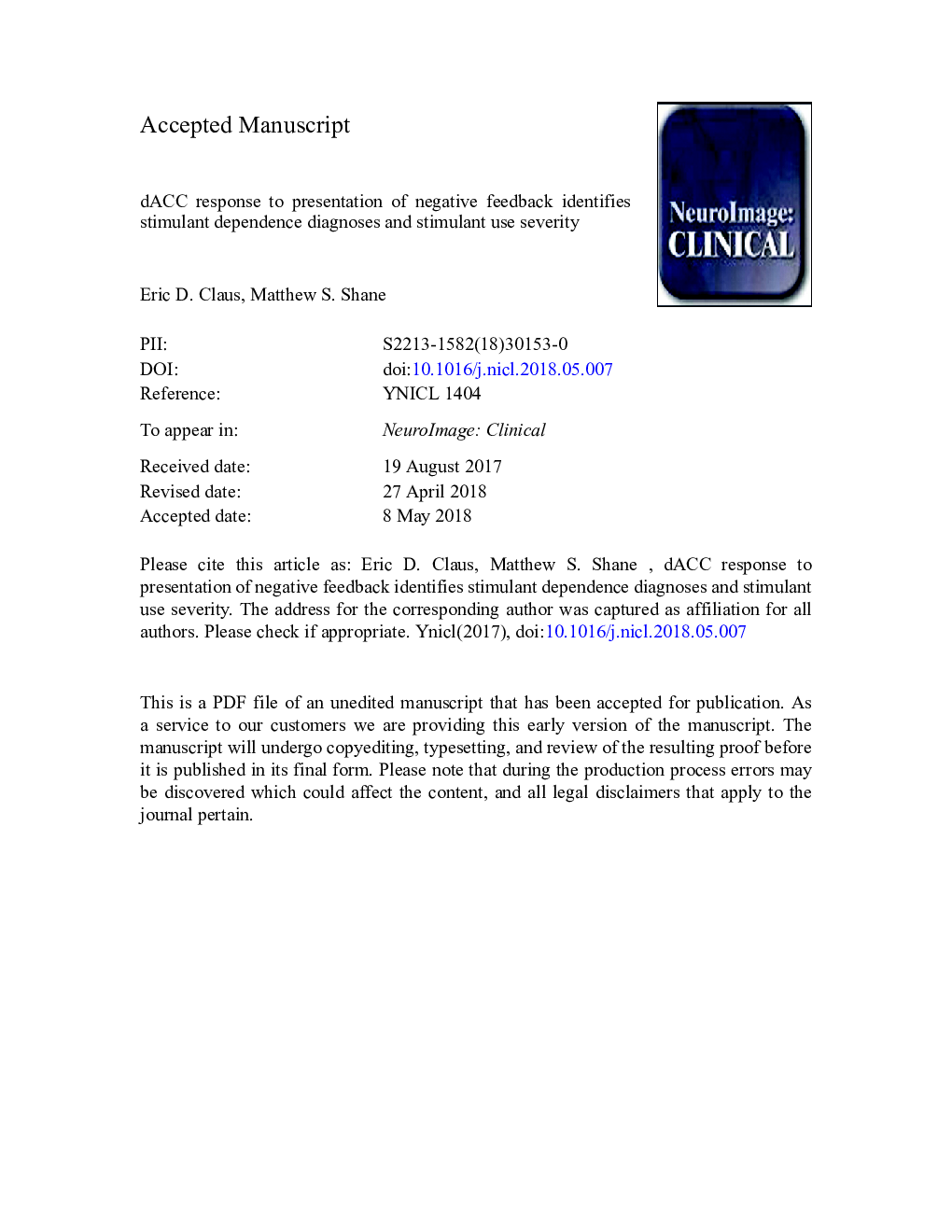| Article ID | Journal | Published Year | Pages | File Type |
|---|---|---|---|---|
| 8687497 | NeuroImage: Clinical | 2018 | 30 Pages |
Abstract
Error-monitoring abnormalities in stimulant-dependent individuals (SDIs) may be due to reduced awareness of committed errors, or to reduced sensitivity upon such awareness. The distinction between these alternatives remains largely undifferentiated, but may have substantial clinical relevance. We sought to better characterize the nature, and clinical relevance, of SDIs' error-monitoring processes by comparing carefully isolated neural responses during the presentation of negative feedback to a) stimulant dependence status and b) lifetime stimulant use. Forty-eight SDIs and twenty-three non-SDIs performed an fMRI-based time-estimation task specifically designed to isolate neural responses associated with the presentation (versus expectation) of contingent negative feedback. SDIs showed reduced dACC response compared to non-SDIs following the presentation of negative feedback, but only when error expectancies were controlled. Moreover, lifetime stimulant use correlated negatively with magnitude of expectancy-controlled dACC attenuation. While this finding was minimized after controlling for age, these results suggest that SDIs may be characterized by a core reduction in neural activity following error feedback, in the context of intact feedback expectancies. Correlations with lifetime stimulant use suggest that this neural attenuation may hold clinical significance.
Related Topics
Life Sciences
Neuroscience
Biological Psychiatry
Authors
Eric D. Claus, Matthew S. Shane,
